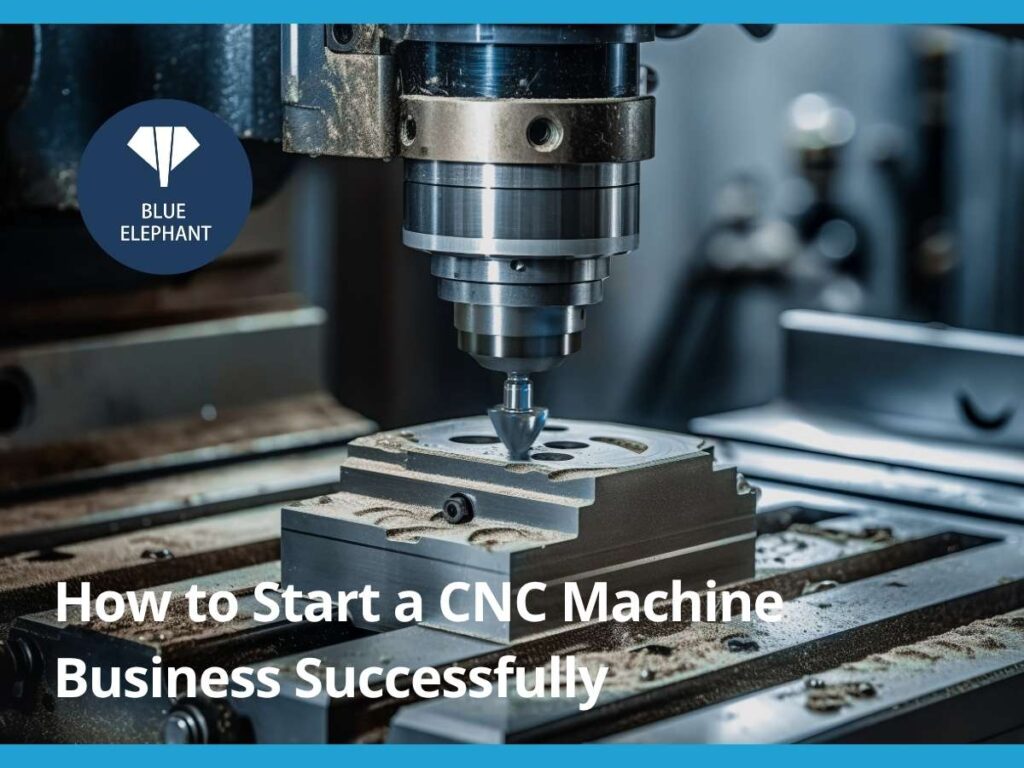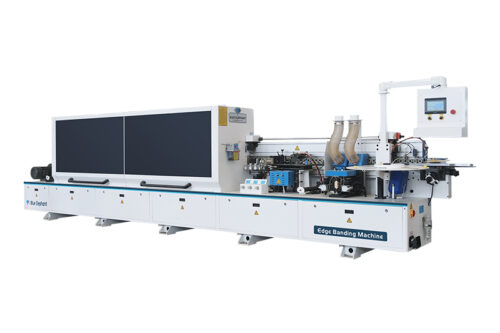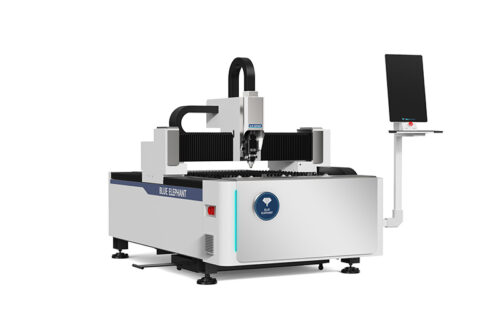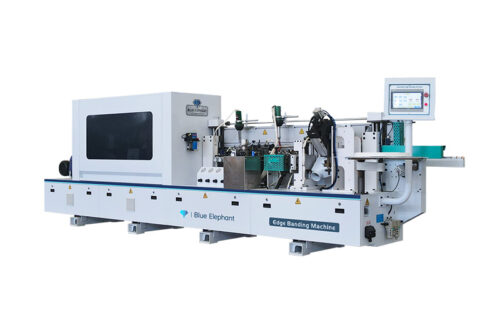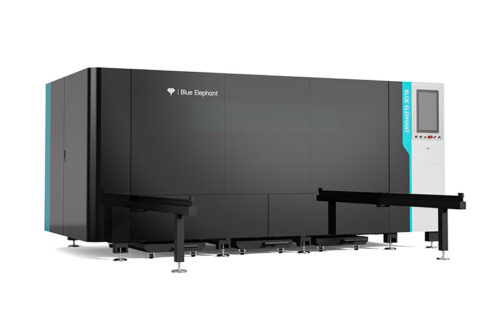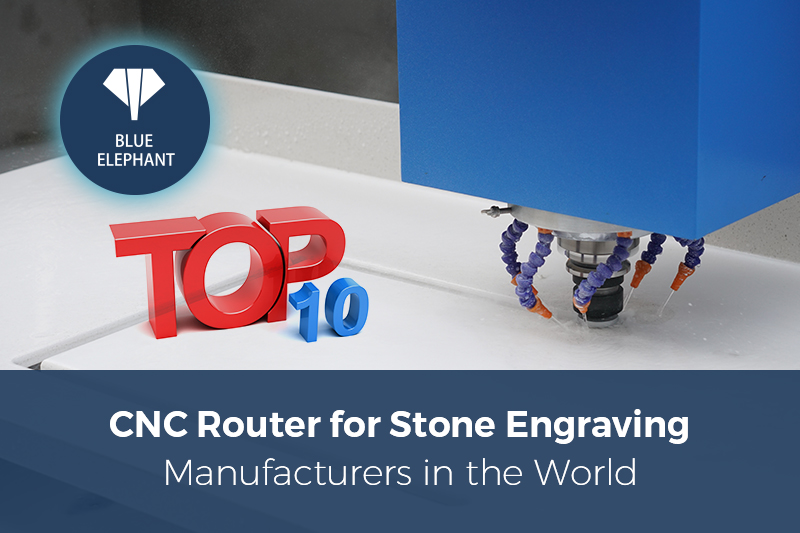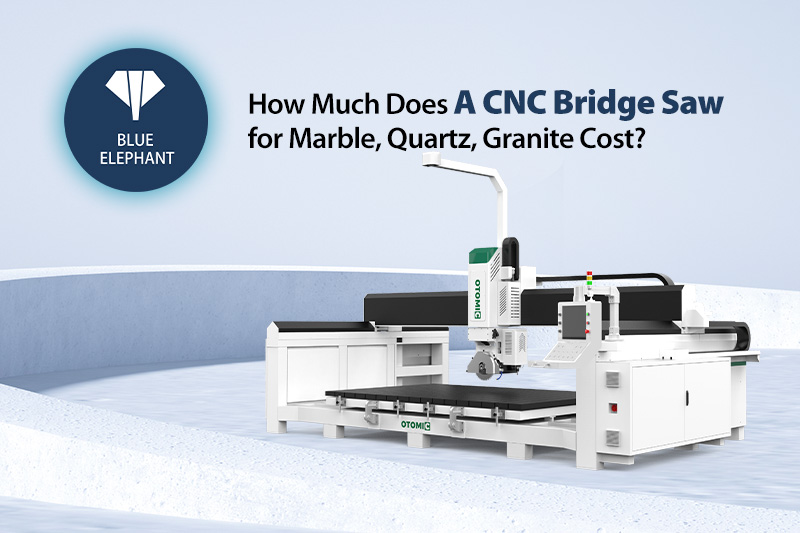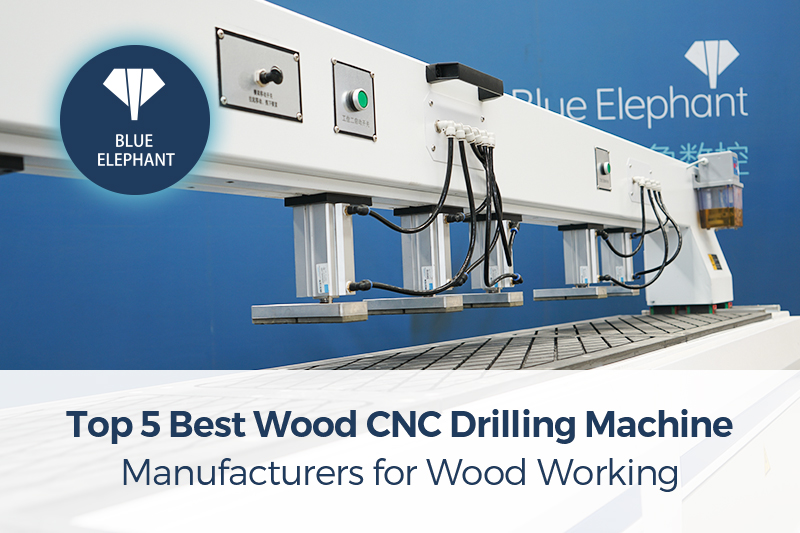I still remember the frustration of buying my first CNC machine. The excitement faded quickly when I realized I had no idea how to turn it into a real business. I spent weeks researching, made costly mistakes, and almost gave up.
Then, I started learning from people who had been in the industry for years—machine dealers, repairers, and workshop owners who had already built successful CNC businesses. I asked questions, tested different strategies, and slowly figured out what actually works.
If you’re wondering how much it costs, whether it’s profitable, or how to find customers—this guide has the answers.
What machines should you start with? How do you price your services? I’ll break it all down so you can take action today.
By the end, you’ll have a step-by-step plan to build a CNC business the right way.
Let’s dive in!
Step#1: Research the CNC Industry & Identify Your Market
I remember the first time I saw a CNC machine in action. A simple block of metal went in, and minutes later, a perfectly cut part came out. No guesswork. No mistakes. Just precision.
CNC (Computer Numerical Control) machines automate cutting, milling, engraving, and shaping materials. They follow programmed instructions, turning raw materials into finished products.
They are used in industries like:
- Automotive: Making engine parts and frames.
- Aerospace: Producing aircraft components.
- Furniture: Carving wood for cabinets and custom pieces.
- Advertising: Cutting signs and engravings.
Whatever you want to make, there’s a CNC machine that can do it. But not every CNC business is profitable. You need to find the right business model.
Identify a Profitable CNC Business Model
Not all CNC businesses work the same way. Some focus on services, while others sell finished products. The key is choosing one that matches your skills, budget, and market demand.
Here are 3 common models:
CNC Job Shop
- Takes orders from businesses that need custom parts.
- Works well if you have a variety of machines.
- Requires networking and a steady flow of clients.
Specialized CNC Manufacturing
- Focuses on making parts for a specific industry (automotive, aerospace, furniture, etc.).
- Requires expertise in that field.
- Often involves repeat clients and bulk orders.
CNC Product Creation
- Makes and sells CNC-crafted products like furniture, signs, or custom engravings.
- Can be sold online, in stores, or directly to businesses.
- Great for creative entrepreneurs who enjoy designing.
Each model has its pros and cons. A job shop may give you steady work but requires constant client hunting. Manufacturing can be profitable but takes experience. Selling your own products allows freedom but needs strong marketing.
Which one fits your skills and goals?
Analyze Market Demand & Competition
Many people rush in, buy a CNC machine, and then struggle to find customers. The key? Research first, invest second.
Start local—who needs CNC services nearby? Are businesses outsourcing parts? Is there a demand for custom work?
Go online. Check Etsy, Alibaba, and industry forums. What CNC products or services are selling?
Study competitors. What are they charging? What do customers love—or complain about?
Find the gaps. Maybe no one offers custom furniture or 3D engraving in your area. Maybe manufacturers need faster, more precise machining. Spot the opportunity, and you’ll know exactly where to position your CNC business.

Step#2: Develop a CNC Business Plan
When I first thought about starting a CNC business, I had one goal—make money cutting parts. But without a clear plan, I had no idea how much to invest, who my customers were, or how to keep costs low. I learned the hard way that a solid business plan isn’t optional—it’s your roadmap to success.
Define Your Business Goals & Strategy
Before you do anything, figure out what kind of CNC business you want. Ask yourself:
- What will you offer? Custom machining, batch production, or CNC-made products like furniture and signage?
- Who are your customers? Businesses, manufacturers, or individual buyers?
- What materials will you work with? Metal, wood, acrylic, or a mix?
Some people try to do everything, but that’s a mistake. Specializing helps you stand out and charge higher rates.
Estimate Startup Costs & Investment
CNC businesses can be expensive to start, but knowing your costs upfront prevents surprises.
- CNC Machine: $5,000 to $100,000+ depending on size and type.
- Workshop Setup: Electrical work, ventilation, workbenches, and safety gear.
- Software & Licensing: CAD/CAM software, CNC controllers, and design tools.
- Raw Materials: Wood, metal, plastics, or acrylic (depends on your niche).
- Marketing & Branding: Website, business cards, social media ads.
- Employee Salaries: If hiring staff, factor in wages and training.
Starting lean is best. Buy only what you need and reinvest profits to scale later.
Funding Your CNC Business
Machines aren’t cheap, and not everyone has thousands of dollars saved. Here’s how you can fund your startup:
- Self-Funding: If you have savings, start small and grow.
- Business Loans: Banks and credit unions offer financing, but interest rates vary.
- Government Grants: Some manufacturing startups qualify for funding.
- Equipment Leasing: Instead of buying upfront, lease machines to reduce costs.
I know someone who leased a CNC router for a year before purchasing. It saved him from a big upfront investment and let him test demand first.
Registering Your CNC Business
Legal steps aren’t fun, but skipping them can cause trouble later.
- Choose a Business Structure: LLC, Sole Proprietorship, or Corporation.
- Get Required Permits: Local business licenses, zoning approvals, CNC operation permits.
- Register for Taxes: Apply for an EIN (Employer Identification Number).

Step#3: Set Up Your CNC Workshop
Starting a CNC business is exciting, but your workshop setup can make or break your success. A cluttered space, unstable power, or the wrong machine can lead to delays, wasted materials, and costly repairs. A well-organized shop keeps things running smoothly and efficiently.
Choose the Right CNC Machines
Your machine choice depends on what you plan to create. Buying the wrong one can limit your work and waste money.
- CNC Routers: Great for woodworking, signage, and acrylic cutting. Ideal for furniture makers and sign businesses.
- CNC Mills: Designed for metal and precision machining. Used in aerospace, automotive, and metal fabrication.
- Laser Cutters: Perfect for engraving and cutting soft materials like leather, plastic, and fabrics.
- Plasma Cutters: Best for thick metal sheets. Used for industrial metalwork and heavy-duty projects.
Setting Up a Productive Workshop
A disorganized workshop slows you down. Machines need space, power, and safety measures to work efficiently.
- Space Requirements: Plan for enough clearance around machines, storage for raw materials, and a clear workflow.
- Safety Equipment: Have fire extinguishers, ventilation, and protective gear (gloves, goggles, masks). CNC work produces dust and fumes that need proper handling.
- Power Supply: CNC machines require stable electricity. Check voltage requirements and consider surge protection to prevent damage.
Software & Automation Integration
Your CNC machine is only as good as the software controlling it. Without the right tools, production slows down.
- CAD Software: AutoCAD, Fusion 360, SolidWorks help you design precise parts.
- CAM Software: Mastercam, VCarve, Aspire convert designs into machine-readable instructions.
- CNC Controller Software: Mach3, GRBL, LinuxCNC control machine movements for accurate cutting.
Automation can also reduce labor costs and boost efficiency. Instead of manually adjusting settings, automated workflows let your CNC machines handle tasks with minimal input.
Step#4: Find Clients & Market Your CNC Business
Having a CNC workshop is great, but without customers, it’s just a costly hobby. Many CNC businesses fail because they focus only on production and ignore marketing. The truth is, finding clients takes strategy. If people don’t know you exist, they won’t buy from you.
Here’s how to put your business in front of the right customers.
Branding & Online Presence
Your CNC business needs to be easy to find. A strong online presence helps attract local and global customers.
- Create a Website: Showcase your services, past work, and contact details. Keep it simple but professional.
- List on Google My Business: This helps local customers find you when they search for CNC services.
- Use Social Media: Facebook, Instagram, LinkedIn, and YouTube are powerful tools. Share photos, videos, and testimonials. Show your machines in action.
- Join Industry Forums & Groups: Many business owners look for CNC services in online communities. Answer questions and offer solutions.
Marketing doesn’t need to be complicated. Start small, stay consistent, and build your reputation.
Reaching Your Target Customers
Every CNC business has a different customer base. Finding the right one makes your business more profitable.
- Machine Dealers: Partner with resellers to offer CNC-cut parts or machining services.
- Spare Parts Dealers: Manufacture replacement parts for industrial and commercial machinery.
- Machine Repairers: Create custom components for maintenance and repairs.
- Rental Companies: Offer CNC machine rental services for businesses that need temporary solutions.
- Terminal Users (Furniture, Mold Design, Advertising, etc.): Sell direct-to-consumer CNC products like furniture, signs, and prototypes.
Find customers where they already are. Connect with businesses, go to trade shows, and network online.
Pricing CNC Services for Profitability
Pricing can make or break your CNC business. Charge too little, and you lose money. Charge too much, and customers go elsewhere.
A simple pricing formula:
Material Cost + Labor + Overhead + Profit Margin = Final Price
- Offer Bulk Discounts: Businesses that order in volume bring steady income.
- Long-Term Contracts: Lock in repeat customers by offering better pricing for ongoing work.
- Check Competitor Pricing: Research what others charge and adjust your rates accordingly.
Profitability comes from smart pricing. Know your costs, set fair rates, and don’t undervalue your work.
Step#5: Manage CNC Business Operations Effectively
Running a CNC business is more than just cutting materials. If you don’t manage operations well, small problems turn into costly delays. Orders pile up, machines break down, and customers get frustrated. The good news? A few smart strategies can keep your business running smoothly.
Streamline Production & Workflow
Efficiency matters. A well-organized CNC shop produces more in less time, with fewer mistakes.
- Use Job Scheduling Software: Track orders, manage deadlines, and avoid bottlenecks. Software like JobBOSS, Fusion 360, or ShopVOX can help.
- Optimize Material Use: Wasted material means wasted money. Nesting software arranges cuts to minimize scrap.
- Train Employees on CNC Efficiency: Even skilled operators need guidance. Teach them how to reduce setup time, handle materials correctly, and troubleshoot minor issues.
A smooth workflow reduces stress, speeds up production, and improves profits.
Machine Maintenance & Troubleshooting
CNC machines work hard. Without regular maintenance, they wear down faster and break when you need them most.
Routine Maintenance Tasks:
- Lubrication: Keeps moving parts from grinding down.
- Cleaning: Dust and debris clog machines, affecting precision.
- Part Replacement – Tools and bearings wear out over time. Replace them before they fail.
Common CNC Issues & Fixes:
- Misalignment: If cuts seem off, check machine calibration.
- Tool Wear: Dull tools slow production and ruin materials. Replace them regularly.
- Software Glitches: Sometimes, a simple restart fixes unexpected errors. If not, update your software or check for bugs.
When to Upgrade Machines
If you’re constantly repairing your CNC machine or struggling to meet demand, it might be time to invest in a better model. Newer machines work faster, last longer, and offer advanced features that improve accuracy.

Step#6: Scale & Expand Your CNC Business
Once your CNC business is running smoothly, the next step is growth. Expanding isn’t just about buying more machines—it’s about increasing efficiency, reaching new customers, and maximizing profits. Growth takes planning, but when done right, it opens doors to bigger opportunities.
Adding More CNC Machines & Services
At some point, one machine won’t be enough. More orders will come in, and you’ll need to scale production.
- Expand Services: Offer 3D engraving, precision machining, or batch production to attract different customers.
- Rent CNC Machines: Some businesses need temporary CNC solutions. Offering rentals can bring in steady income.
- Provide Training: Many people want to learn CNC machining. Teaching classes or online courses can be another revenue stream.
More services mean more income, but only if there’s demand. Research before expanding to avoid unnecessary costs.
Automating & Increasing Production Efficiency
Manual work limits how much you can produce. Automation speeds things up and reduces errors.
- Use Robotic Automation: Robots can load and unload materials, reducing labor costs and increasing output.
- Upgrade Software: AI-driven CNC programs optimize cutting paths, saving time and material.
- Improve Workflow: Rearranging your shop layout, using better tooling, and scheduling jobs efficiently can boost productivity without major costs.
Faster production means lower costs, higher profits, and more satisfied customers.
Expanding Market Reach
The more customers you reach, the more your business grows. Selling locally is great, but online and international markets can take things to the next level.
- Sell Products Online: Platforms like Etsy, Amazon, and your own eCommerce website allow you to sell CNC-made products worldwide.
- Partner with Larger Manufacturers: Some big companies outsource CNC work. Partnering with them guarantees consistent orders.
- Explore International Markets: Demand for CNC services exists everywhere. Research global trends and see where your services fit.
Reaching new markets requires effort, but it’s one of the best ways to scale your CNC business.
Step#7: Tips for Success in the CNC Machine Business
Starting a CNC business is more than just buying machines. Success comes from smart planning, efficient operations, and continuous learning. The market is competitive, but with the right approach, you can build a profitable and sustainable business.
Start Small and Specialize
Many new CNC business owners make the mistake of buying too many machines too soon. It’s better to start with one high-quality machine, refine your process, and reinvest profits into growth. Specializing in a profitable niche—like furniture, signage, or precision parts—helps you stand out and attract consistent customers.
Prioritize Quality and Efficiency
Reputation is everything in CNC machining. Using high-quality tools and materials ensures precise, professional results. Regular machine calibration and workflow improvements reduce waste and increase efficiency, helping you meet deadlines without sacrificing quality.
Market Your Business and Build Connections
A strong online presence helps you attract more clients. A simple website showcasing your work builds credibility, while social media platforms like Instagram and LinkedIn expand your reach. Networking with machine dealers, repair shops, and manufacturers can open doors to bulk orders and long-term contracts.
Stay Updated and Keep Learning
Technology in CNC machining evolves quickly. Learning new software, upgrading machines when needed, and staying informed about industry trends keeps your business competitive. Automation and AI-driven CNC tools can boost efficiency and help you scale over time.
Conclusion
Building a CNC business isn’t just about machines—it’s about planning, quality, and persistence. From setting up your workshop to marketing your services, every step matters. Success comes when you specialize, price wisely, and deliver precision work.
The best time to start? Now. Don’t overthink it. Take the first step, learn as you go, and grow at your own pace.
What will you create? What market will you serve?
If you’re ready to turn your CNC skills into profit, contact us today!
Dive Deeper Into Our Resources
We’ve got more for you! These articles provide more tips and guidance to keep you on track:
Starting a CNC Business
- How to Start a CNC Business from Scratch
- How To Start CNC Machining Business?
- How To Start A CNC Machine Shop?
- How to Start a CNC Business?
- Is a CNC Machine Business Profitable?
Business Strategy & Profitability
- 7 Profitable CNC Machine Business Ideas
- How To Make Money with A CNC Machine?
- How Profitable Is a CNC Business?
- Top 10 CNC Machines Perfect for Small Businesses
Cnc Machine Cost & Brands
Still haven’t found what you’re looking for? Don’t hesitate to contact us. We’re available around the clock to assist you.


